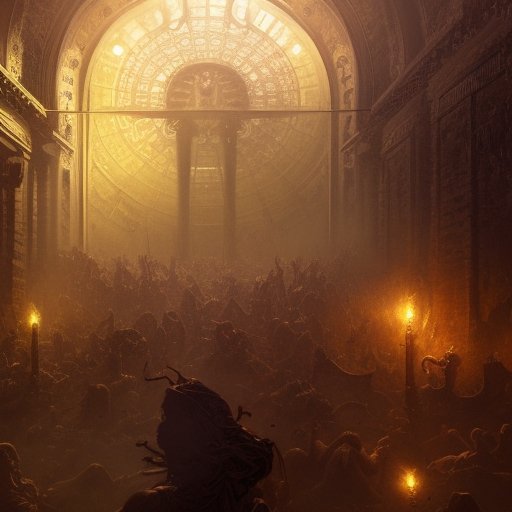
This article examines the effects of too much work and not enough play on a fictional character named Jogan. It traces the history of Jogan’s sadness, exploring the impact of excess work on his mental wellbeing, as well as the effects of inadequate playtime. It further explores Jogan’s working habits and offers strategies for finding a balance between work and play. Finally, resources are provided to help Jogan achieve a healthier work-play balance and overcome his sadness. Through this article, readers are provided with guidance and insight into Jogan’s struggles, and a better understanding of the importance of maintaining a healthy work-play balance.
I. Introduction
Jogan was a young man, full of life and joy, until one day he found himself feeling down and out. He was overworking himself, and not taking the time to enjoy the little things. This work-centric lifestyle had a lasting effect on Jogan, and soon enough all the joy he once had was gone, replaced by a combination of fatigue and sadness. He was stuck in a rut, and he needed to find a way out.
This article will discuss why all work and no play has made Jogan a sad boy. We will explore the history of Jogan’s sadness, the impact of too much work, the effects of not enough play, Jogan’s working habits, and how to find a balance. Resources for Jogan will also be discussed in order to help him find the joy he once had.
II. The History of Jogan’s Sadness
Jogan’s sadness had been a long-standing issue. It seemed as though his childhood had been marked by a lack of joy, even before his workaholic tendencies had been formed. His parents had never been the type to encourage frivolity and fun, and his experience in school had been one of hard work and dedication. Even his peers had been focused on their studies, leaving little time for play.

As Jogan grew older, he devoted more of his energy to his work. He was often seen spending far too much time in his office, and his social life had been non-existent. He had become a shell of his former self, and his sadness became more and more apparent. It seemed as though his entire life had been consumed by work and no play.
The lack of play had taken its toll on Jogan’s mental and physical health. He had become more irritable and anxious, and his physical health had deteriorated. He had become a pale shadow of the vibrant young man he had once been.
Jogan was a man with a tortured mind and an aching heart. His life had become a cycle of work and more work, with little reprieve from the daily grind. He had become a man without joy, and it was clear that his life of all work and no play had taken its toll.
III. The Impact of Too Much Work
Too much work and not enough play can have a devastating impact on a person’s wellbeing, and it is no different for Jogan. Too much work can lead to increased stress and anxiety levels, which can in turn lead to physical and mental exhaustion. This can result in a decrease in motivation and productivity, which can then lead to a decrease in Jogan’s overall satisfaction.

Furthermore, too much work can lead to a decrease in physical activity, which can result in negative health consequences. Jogan may be more prone to illnesses, fatigue, and weight gain, as well as an increased risk of chronic diseases. In addition, too much work can lead to a decrease in social activities and a feeling of isolation. This can have a profoundly negative effect on Jogan’s social life and his overall happiness.
Not to mention, too much work can also lead to a decrease in creativity and a decrease in Jogan’s overall potential. The monotony of too much work can make it difficult for Jogan to stay inspired or motivated, thus preventing him from reaching his full potential. Moreover, too much work can take away from valuable time with family and friends, thus leading to a decrease in meaningful relationships.
In short, too much work and not enough play can have a severely negative effect on Jogan’s overall wellbeing. From physical and mental exhaustion to a decrease in creativity and meaningful relationships, it is clear that Jogan needs to find a balance between work and play if he wants to find any semblance of happiness.
IV. The Effects of Not Enough Play
Jogan’s lack of playtime is having a serious impact on his mental and physical health. The effects of not enough play can be seen in his lethargic behavior, lack of motivation, and general unhappiness. He is constantly tired, has difficulty concentrating, and has a hard time getting along with others.

The lack of playtime has caused Jogan to become stressed and anxious. He’s always on edge and easily frustrated, which can lead to outbursts of anger and aggression. His mood swings can be drastic, and he often feels overwhelmed and depressed.
Physical health also suffers when playtime is neglected. Jogan has a hard time sleeping and is always exhausted. He’s also prone to illnesses such as colds, flu and other infections. His overall health and fitness levels are poor, and he’s not getting enough exercise.
Jogan’s creativity and imagination have also been stifled by his lack of playtime. He’s not as creative as he used to be, and his ability to think outside the box is weaker than ever. He has difficulty problem-solving and his decision-making skills are suffering as a result.
Jogan’s social life has also suffered from his lack of playtime. He’s not as outgoing as he used to be and has difficulty making and maintaining friendships. He’s also not as interested in activities that involve interacting with other people.
All of these effects of not enough playtime have been devastating for Jogan. He’s become increasingly sad and lonely, and he doesn’t have the energy or motivation to do the things he used to enjoy. Jogan’s lack of playtime is having a serious impact on his mental and physical health and it’s time for him to find a balance.
V. Jogan’s Working Habits
Jogan was a hard worker. He worked long hours and took on extra tasks, always trying to better himself and his career. He was diligent and ambitious, but he was also an avid player of video games, board games, and sports. So, why did all this work and no play make Jogan a sad boy?

Jogan’s work days were long and grueling. He pushed himself to the limit and always made sure he was doing his job to the best of his ability. But when it came to taking a break and having some fun, he often found himself too exhausted to do anything. He was so focused on his work that he forgot to take time for himself.
Jogan’s working habits had a negative effect on his life. He felt drained and tired all the time, and his physical and mental health suffered. His social life also suffered, as he had no time for friends or family. He was always too busy, and he had no energy for leisure activities.
Jogan’s work also kept him from pursuing his hobbies. He was a passionate gamer, but he had no time for it. He was a great athlete, but he could not take part in any sports. He was a talented artist, but he had no room for creativity. Jogan was stuck in a dismal cycle of work and no play.
Jogan was trapped in a world of work and no play. He was a hard worker, but he was missing out on the joys of life. He was stuck in a monotonous routine and was in desperate need of balance.
VI. Finding a Balance
Finding a Balance. Jogan had to figure out how to achieve equilibrium. He needed to find a way to work hard, but also make sure he had enough time for leisure. He needed to find a way to make sure he was productive, but still have some free time to enjoy himself.

Jogan thought long and hard about how he could balance his work and play. He decided to focus on making the most of the time he did have for leisure activities. He would try to maximize his productivity during work hours and make sure he took advantage of his free time.
He also made sure to set aside a few hours every day for himself. He used this time to relax, read, watch movies, go on walks, and just enjoy life. He also made sure to take time to do things with friends and family. He was careful to not let his work take over his life.
Jogan also created a plan to fit in more exercise. He decided to get up early and go for a run or do some yoga before work. He also made sure to take regular breaks during the day to stretch and relax.
Finally, Jogan made sure to prioritize his rest. He made sure to get a good night’s sleep every night and not let his work schedule interfere with it. He also made sure to take regular naps and use them to recharge and reset.
By finding a balance between work and play, Jogan was able to find more joy in his life. He was able to work hard and still find the time to enjoy himself. He was able to maximize his productivity and still find the time to relax and unwind. He was able to make sure he was taking care of himself and still be productive. Jogan had found his equilibrium.
VII. Resources for Jogan
VII. Resources for Jogan

Jogan isn’t the only one struggling with the balance between work and play. There are many resources available to him and others who are similarly situated. To help Jogan find the right balance, he should start by consulting his doctor or counselor. They can provide personalized advice and guidance to help him adjust his schedule and lifestyle.
Jogan might also find helpful advice from support groups or communities online. He could find others who are trying to strike the same balance and learn from their experiences. He could also join a club or organization that focuses on leisure activities and make new friends who have similar interests.
Finally, Jogan should consider taking a break from work and engaging in some self-care. He can find books and articles about self-care and stress relief that provide helpful tips and techniques. He can also look into activities like yoga, meditation, or art therapy. Taking the time to relax and recharge can make all the difference in his ability to stay balanced.
VIII. Conclusion
Jogan’s story is a testament to the importance of finding a balance between work and play. His experience shows that too much work and not enough play can lead to a lack of motivation, an inability to focus, and even long-term mental health issues. He found success when he started to make time for both work and play in his life. With the resources available to him, he was able to get back on track and find a healthy balance. All in all, Jogan’s story is proof that it is possible to have a successful career while still making time for leisure, fun, and relaxation. With a little bit of effort, anyone can find a balance between work and play.






